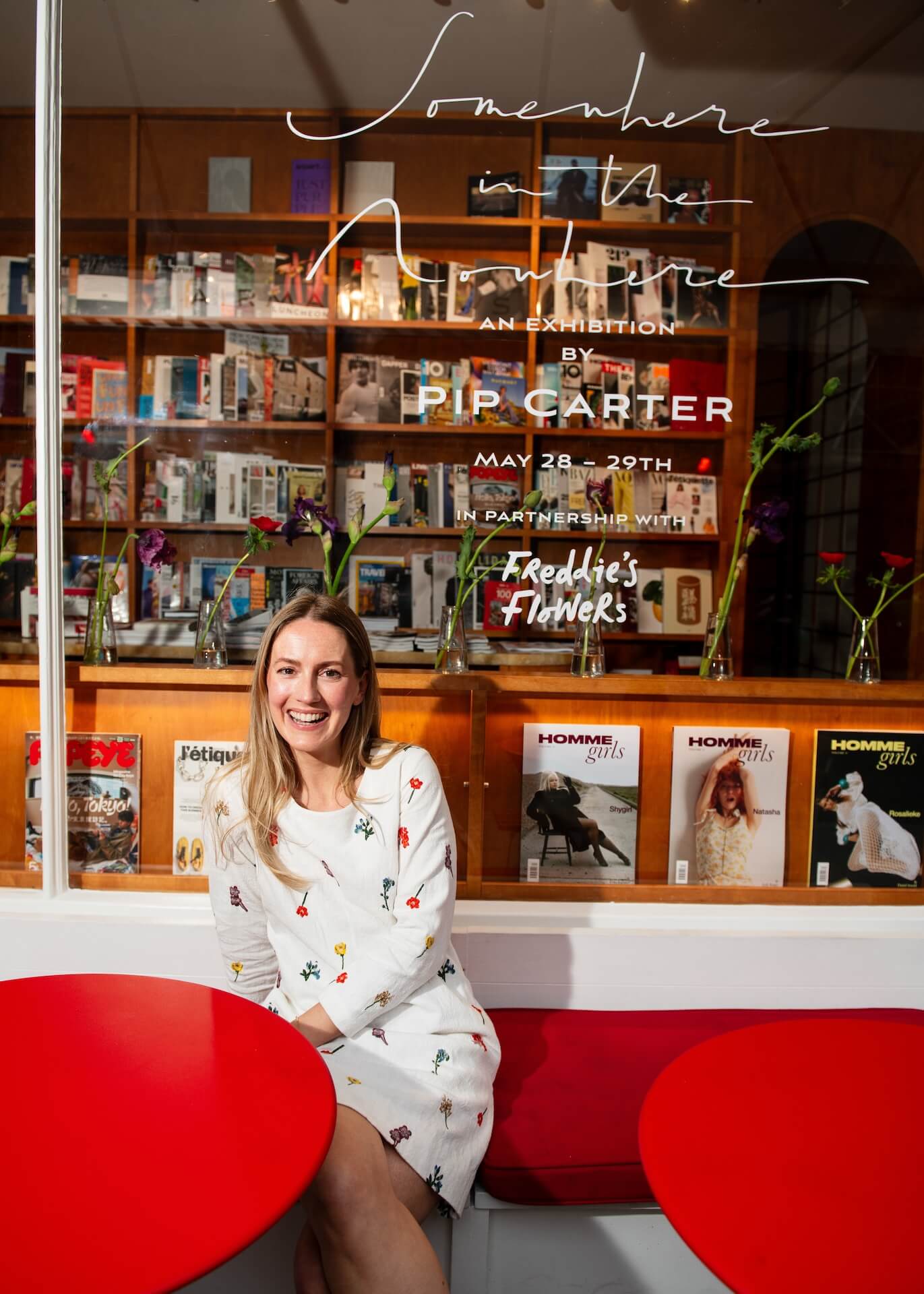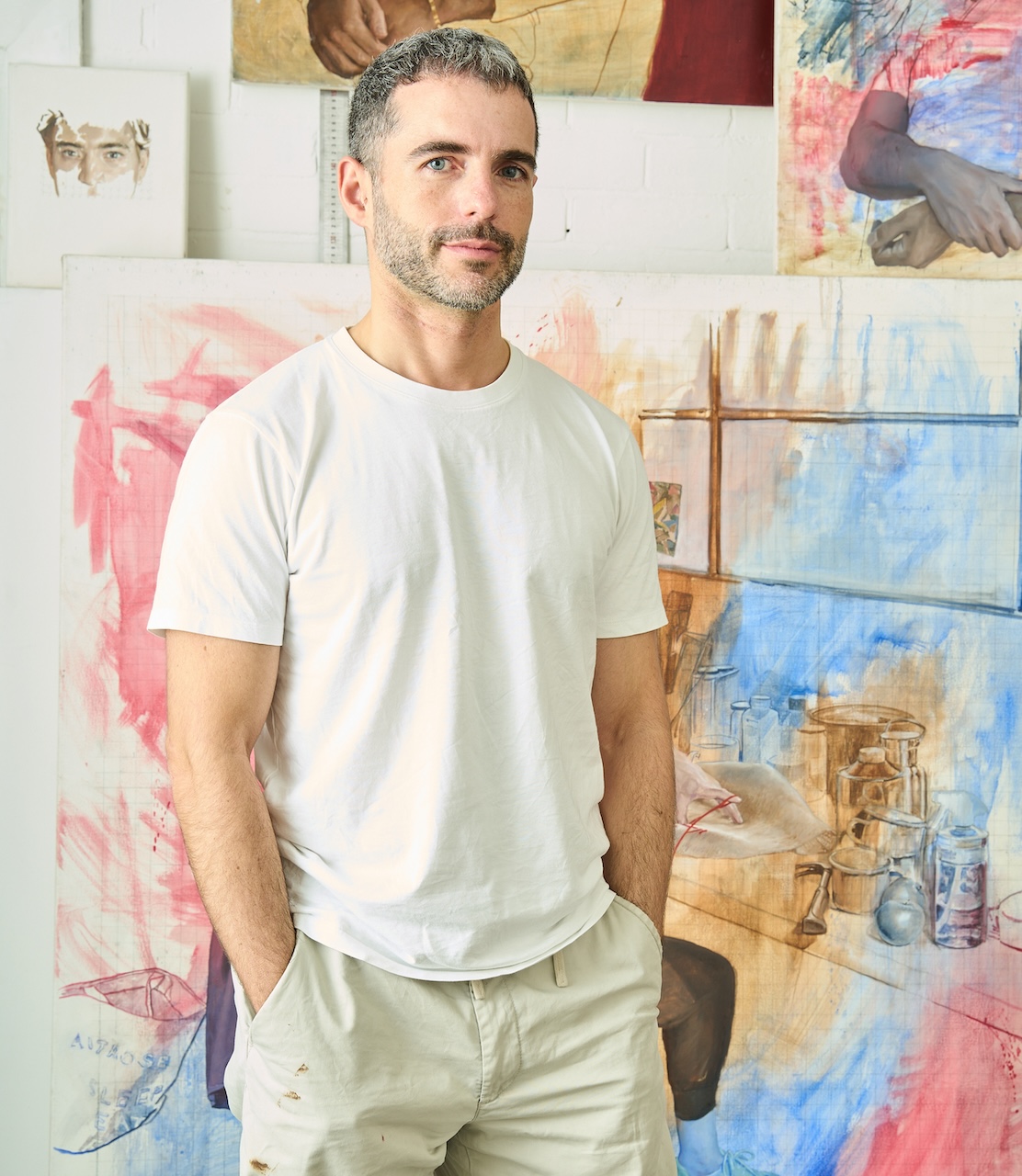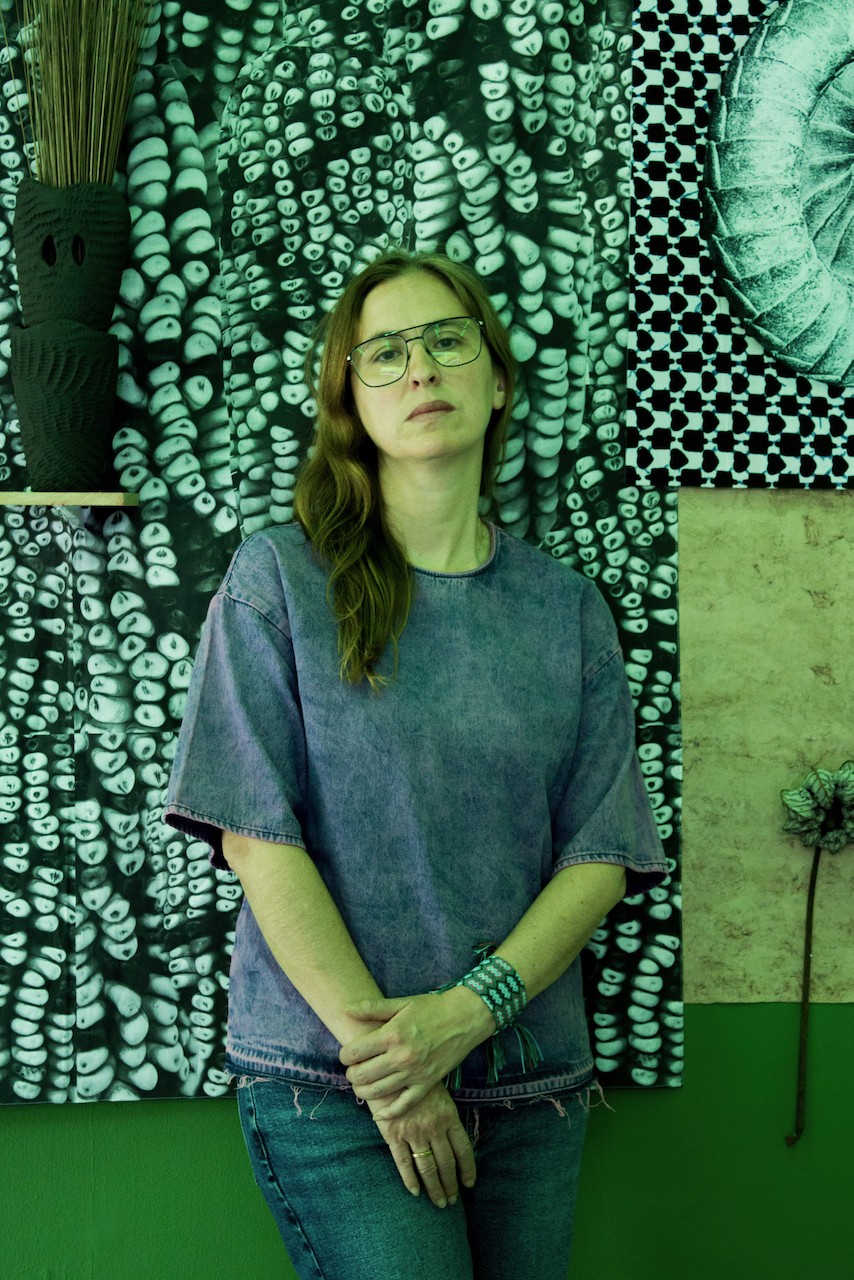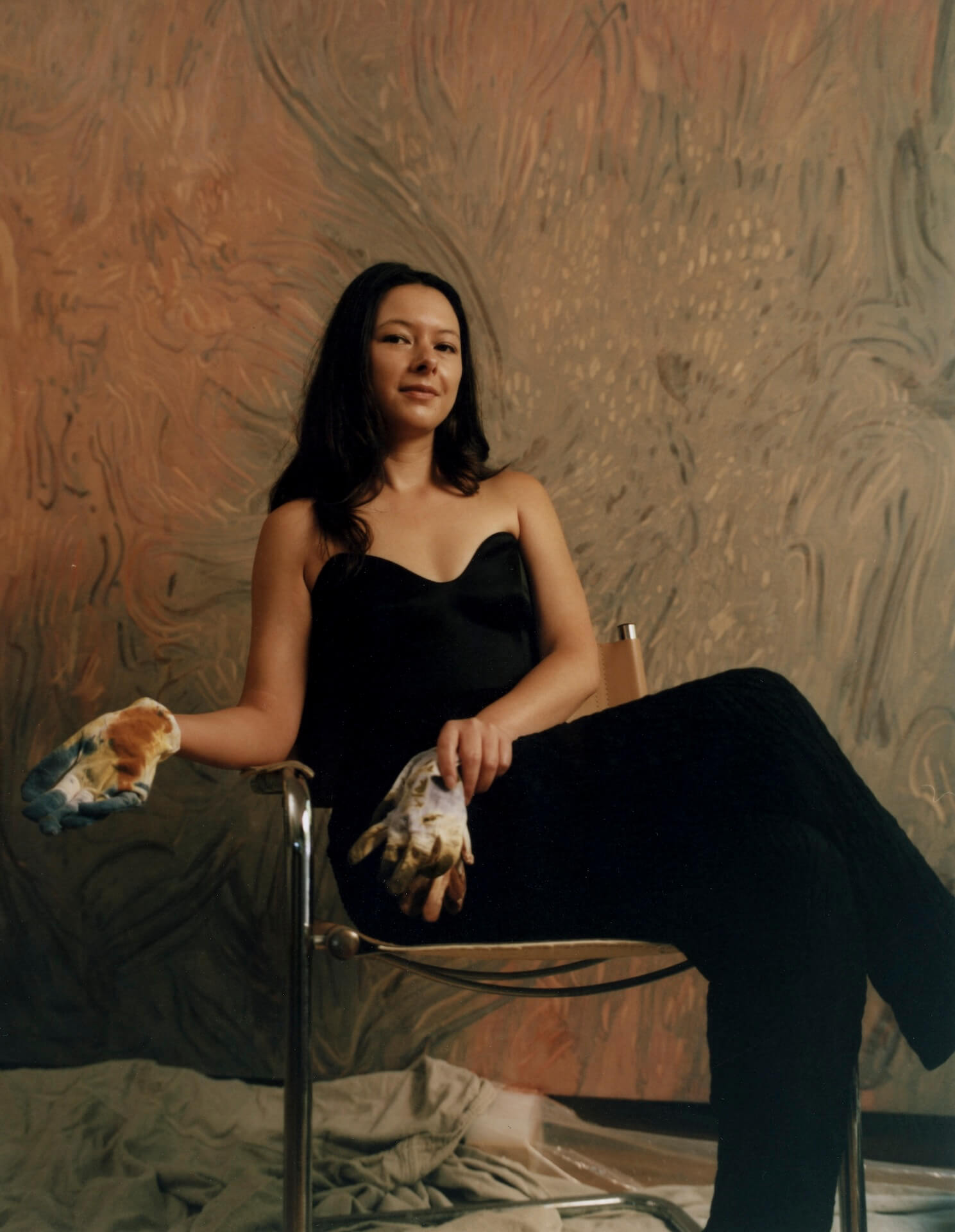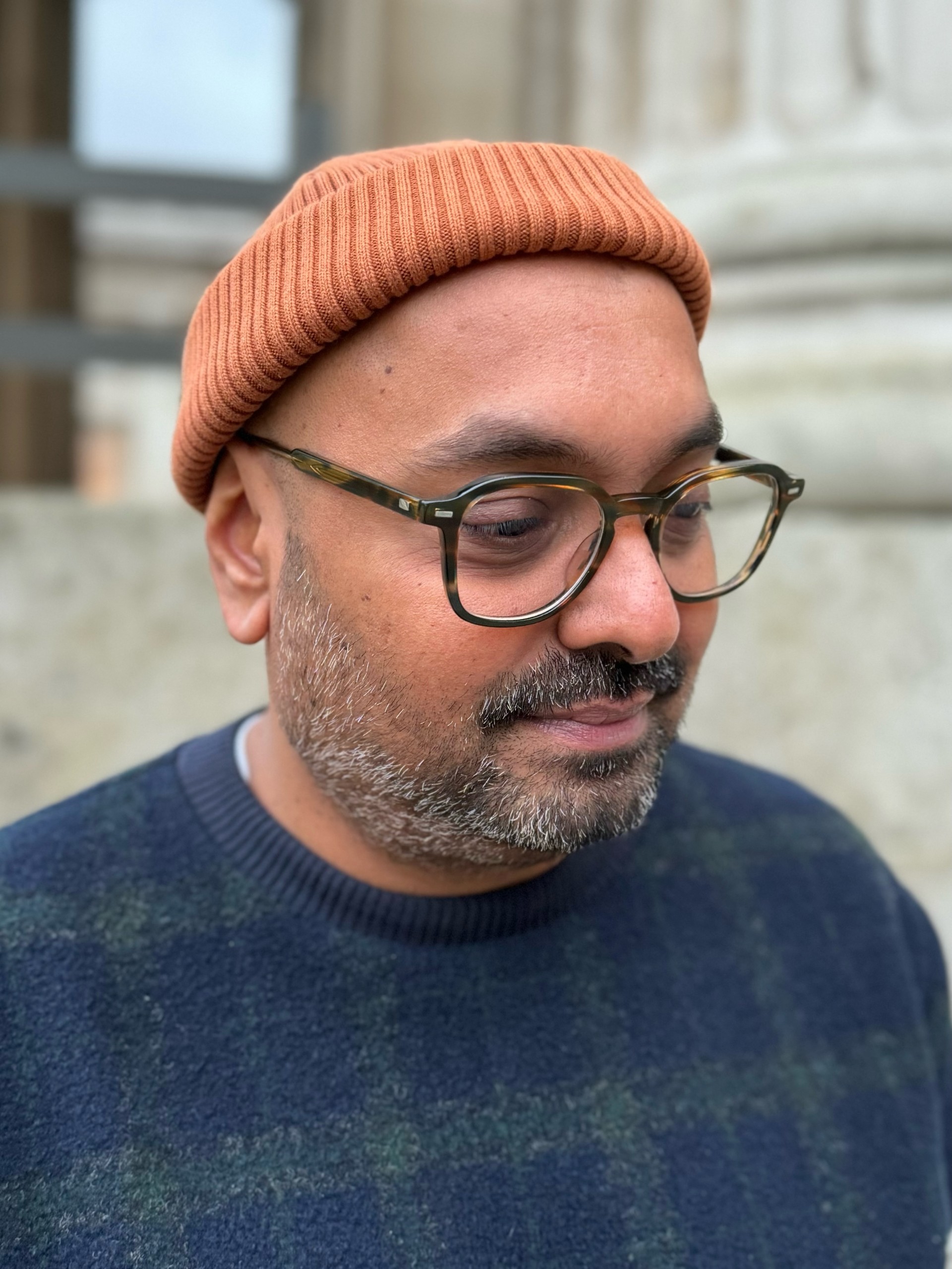Spotlight
Feature RCA graduate and artist Victor Seaward
Championed by Ralph Taylor
Visual Arts

Above Oracle, Victor Seaward
ONES TO
WATCH
WATCH
ONES TO
WATCH
WATCH
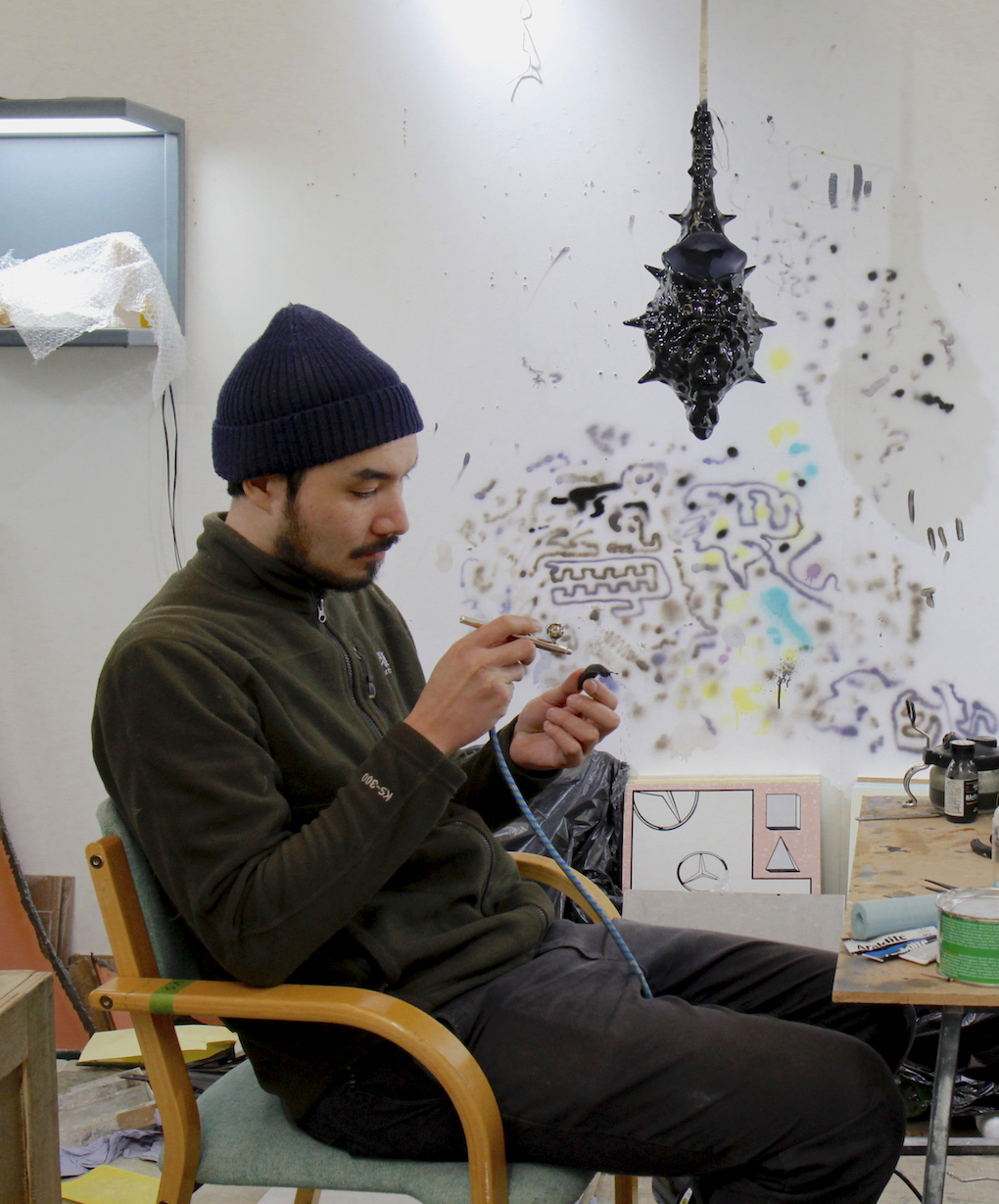
Above Victor Seaward
Interview
Victor Seaward
Interview
Victor Seaward
As global head of post-war and contemporary art for Bonhams in New York, London, Los Angeles, Paris and Hong Kong, Ralph Taylor has seen the department grow by over 1,000% and overseen all 20 of Bonhams’ highest auction results in this area, including the sale of a collection of works by Yayoi Kusama from the Estate of George Hirose ($15,200,000) and an exceptional Girl with Balloon by Banksy (£4,600,000). When it comes to contemporary art, we couldn’t think of a better champion.
Taylor first met London-based artist Victor Seaward when he was also working for Bonhams as a junior specialist – a position he held for four years. Taylor says: “His was a rapier wit and his creativity was wasted in the junior ranks and so when he announced that he had accepted a place at the Royal College of Art I was thrilled.”
After studying History of Art at the University of Leeds, Seaward started an MA in Painting at the Royal College of Art in 2016 – the first year the course was split across both RCA campuses. This enabled Seaward to spend time in a number of different departments including 3D printing, mechatronics and metalwork. His interest in technological advancement and experimentation has stayed with him ever since.
Taylor says: “Victor’s curiosity is unrivalled, his enthusiasm for unusual media is compelling and his work is utterly unique. He is also very good company, which is a nice addition to such an exciting young talent.”
Seaward juxtaposes raw, functional materials, such as concrete and steel, with high-tech manufactured components and objects of historical significance, to investigate authorship, commodity and the fluid nature of time and permanence.
Seawards says: “My biggest achievement to date was probably my second solo show in a project space in Birmingham called Recent Activity. The show was entitled ‘Nebelmeer’, which is German for ‘Sea of Fog’. It was quite an ambitious installation, which comprised of a tableau full of different objects, and past, present and future works from my studio. I had these areas of dry ice that were activated by the gallery director whenever somebody walked into the room, creating this massive sea of dry ice fog. It was probably one of the most ambitious things I’ve attempted for a show, not only in terms of the content of artworks but also in terms of the logistics of getting dry ice delivered to the gallery every day.”
He adds: “My influences and inspiration generally come from a diverse range of sources. I’ve always been interested in ancient art from cultures around the world, from the Olmec civilisation to Neolithic cave painting. But recently I’ve been looking at Jasperware porcelain, which was developed by Wedgwood, and I found the iconography that he employed in the decoration of the porcelain really inspiring. I’ve also been looking at the natural environment as a source of inspiration, specifically Weaver bird nests. Weaver birds make these beautiful, almost architectural nests. I’ve been translating these forms into my sculpture, and that’s led to a new series of works.”
This is the latest series of nests created by Seaward. Previously, he 3D printed aesthetic sculptures that doubled as functional bird nests in accordance with RSPB guidelines. He will show eight new nests at London Art Fair in January in a booth being presented by Brooke Benington Gallery and Contemporary Sculpture Fulmer, an outdoor sculpture park that they curate.
After studying History of Art at the University of Leeds, Seaward started an MA in Painting at the Royal College of Art in 2016 – the first year the course was split across both RCA campuses. This enabled Seaward to spend time in a number of different departments including 3D printing, mechatronics and metalwork. His interest in technological advancement and experimentation has stayed with him ever since.
Taylor says: “Victor’s curiosity is unrivalled, his enthusiasm for unusual media is compelling and his work is utterly unique. He is also very good company, which is a nice addition to such an exciting young talent.”
Seaward juxtaposes raw, functional materials, such as concrete and steel, with high-tech manufactured components and objects of historical significance, to investigate authorship, commodity and the fluid nature of time and permanence.
Seawards says: “My biggest achievement to date was probably my second solo show in a project space in Birmingham called Recent Activity. The show was entitled ‘Nebelmeer’, which is German for ‘Sea of Fog’. It was quite an ambitious installation, which comprised of a tableau full of different objects, and past, present and future works from my studio. I had these areas of dry ice that were activated by the gallery director whenever somebody walked into the room, creating this massive sea of dry ice fog. It was probably one of the most ambitious things I’ve attempted for a show, not only in terms of the content of artworks but also in terms of the logistics of getting dry ice delivered to the gallery every day.”
He adds: “My influences and inspiration generally come from a diverse range of sources. I’ve always been interested in ancient art from cultures around the world, from the Olmec civilisation to Neolithic cave painting. But recently I’ve been looking at Jasperware porcelain, which was developed by Wedgwood, and I found the iconography that he employed in the decoration of the porcelain really inspiring. I’ve also been looking at the natural environment as a source of inspiration, specifically Weaver bird nests. Weaver birds make these beautiful, almost architectural nests. I’ve been translating these forms into my sculpture, and that’s led to a new series of works.”
This is the latest series of nests created by Seaward. Previously, he 3D printed aesthetic sculptures that doubled as functional bird nests in accordance with RSPB guidelines. He will show eight new nests at London Art Fair in January in a booth being presented by Brooke Benington Gallery and Contemporary Sculpture Fulmer, an outdoor sculpture park that they curate.
About the champion
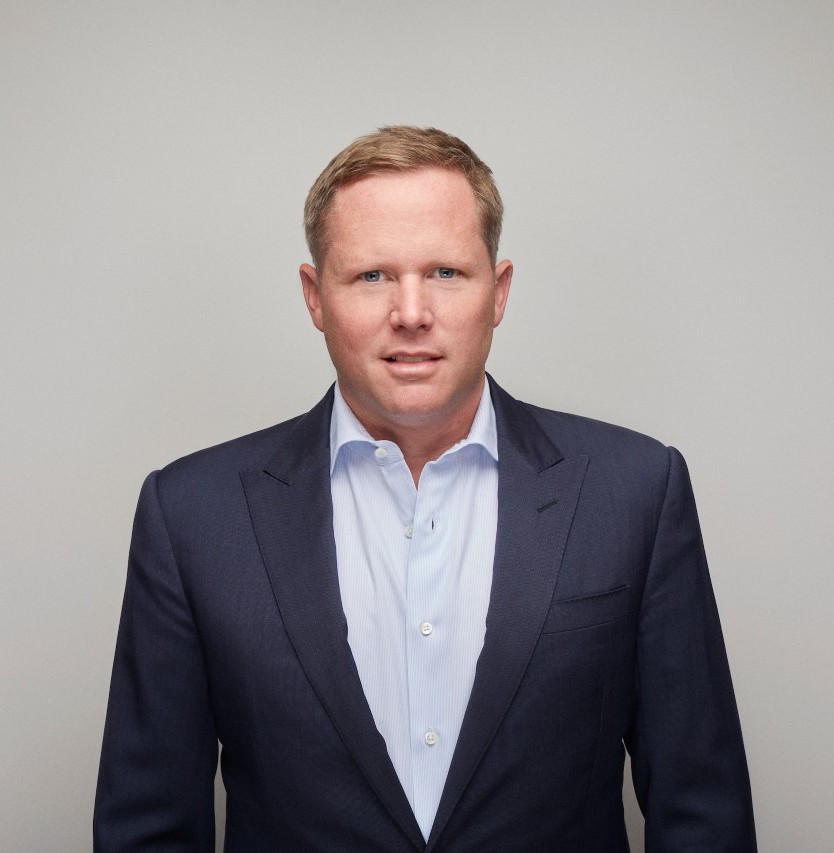
After working for Lazarides Gallery in London, New York and Los Angeles and Sotheby’s in London, Ralph Taylor joined Bonhams in 2014 as senior director for post-war and contemporary art in Europe, before being promoted to his current role in 2017. As well as encouraging exponential growth, he has been instrumental in initiating an exhibition programme that included ZERO Gutai Kusama, The Colony Room and the first-ever exhibition of works by Richard Lin outside of Taiwan.
“Victor’s curiosity is unrivalled, his enthusiasm for unusual media is compelling and his work is utterly unique.”

Above Isabelline and Other Colours, Victor Seaward

Above Victor Seaward
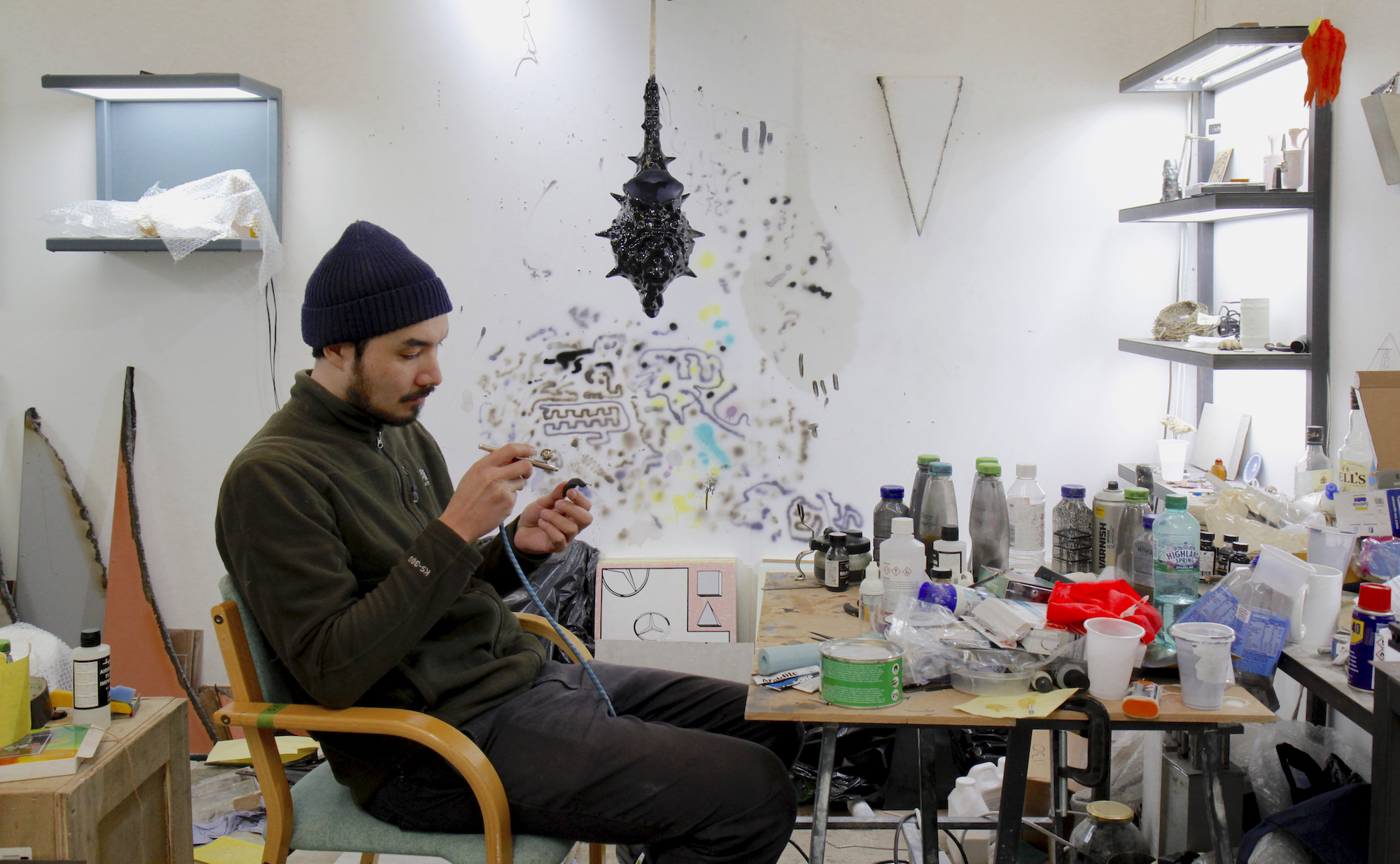
Above Victor Seaward
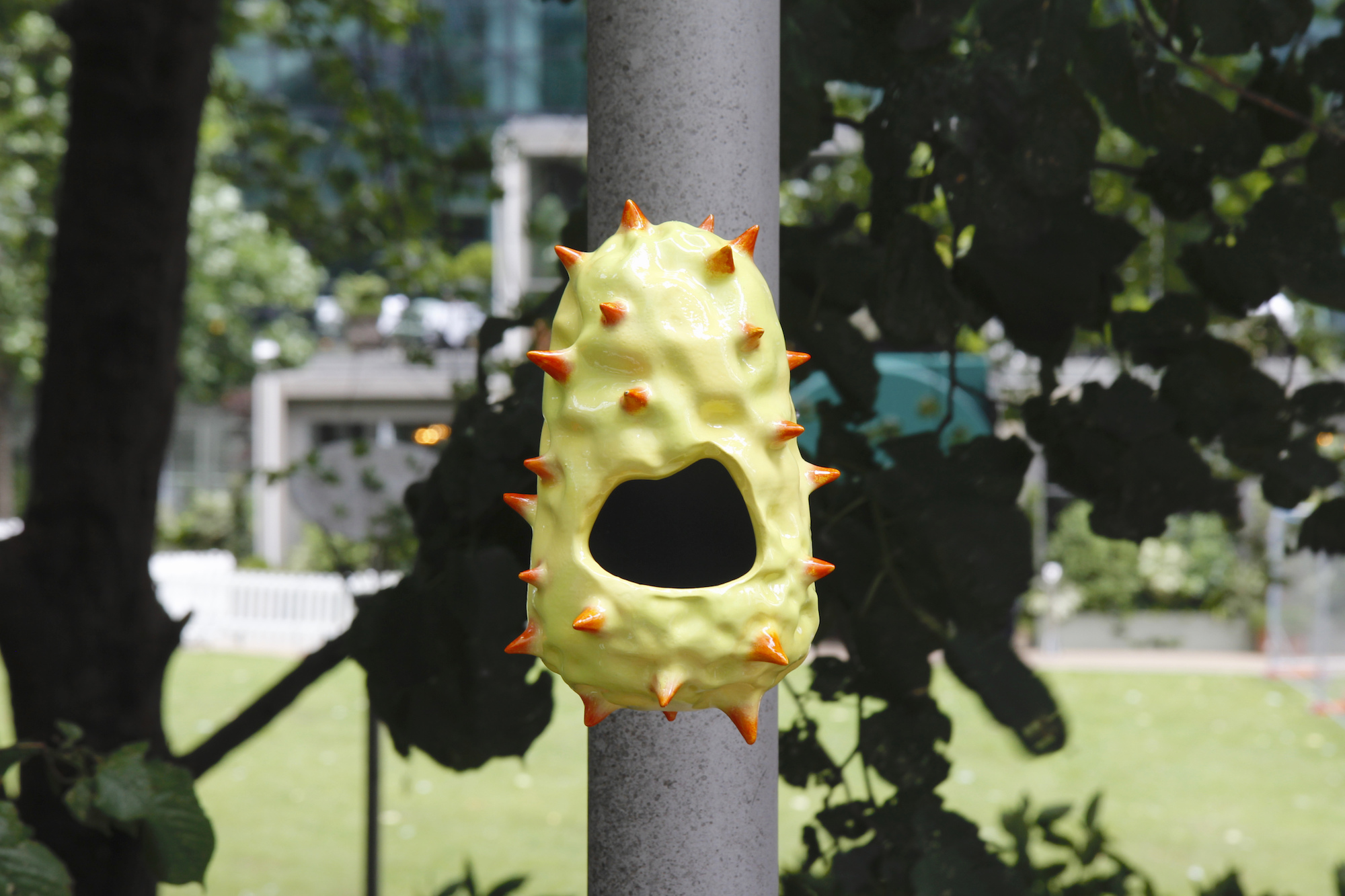
Above Spike 3, Victor Seaward




